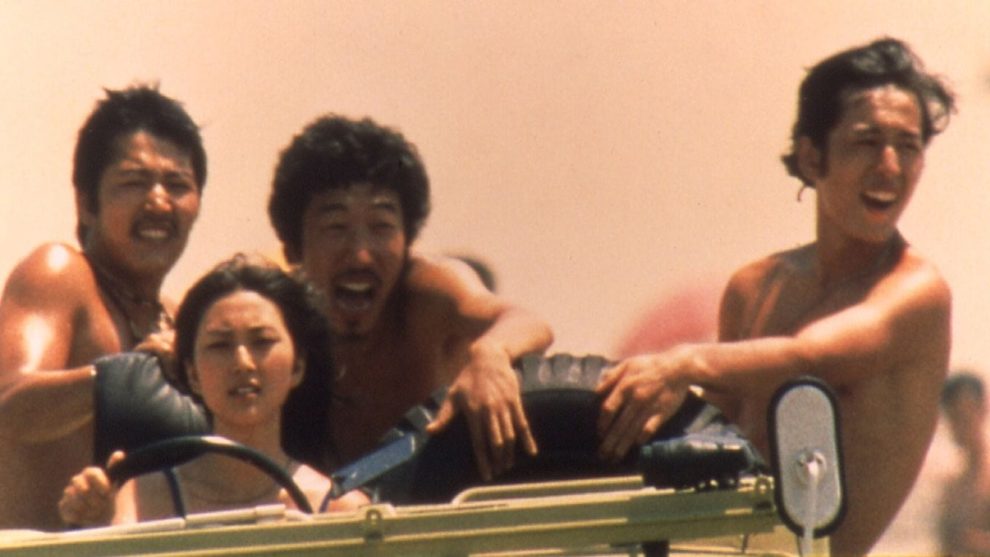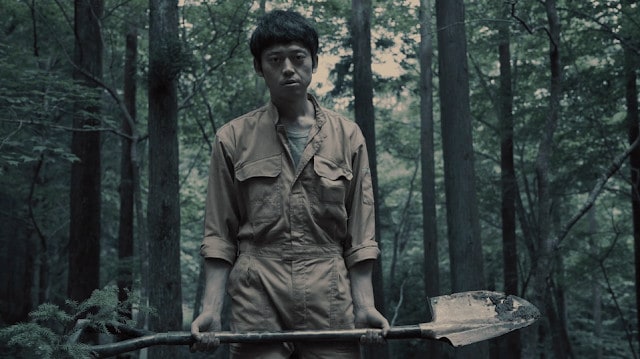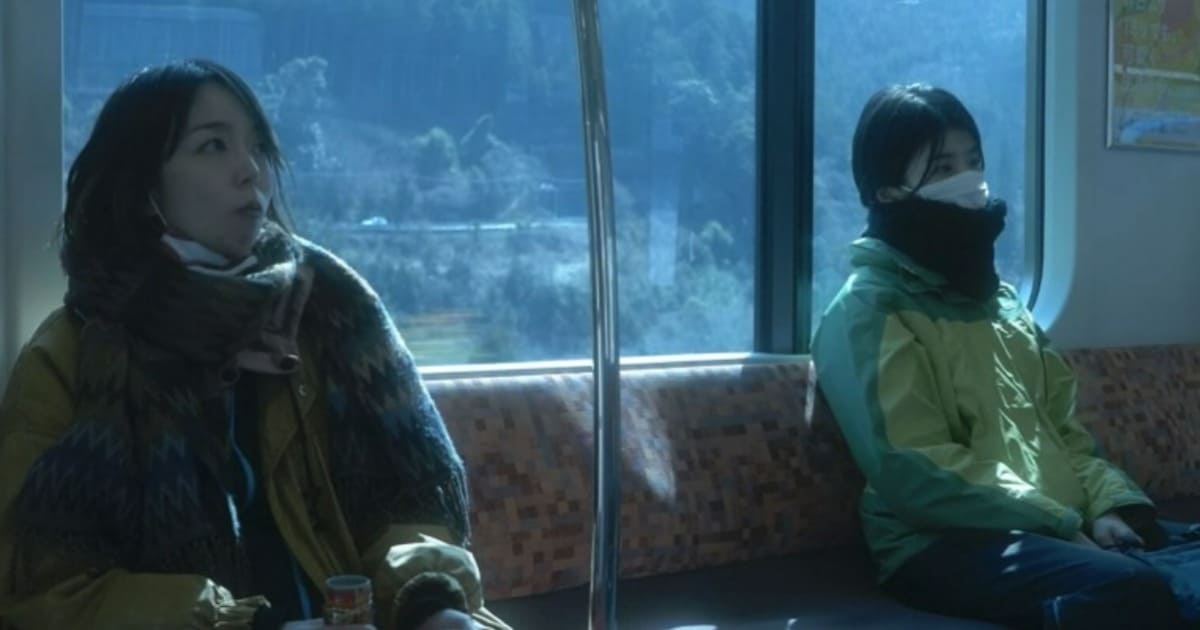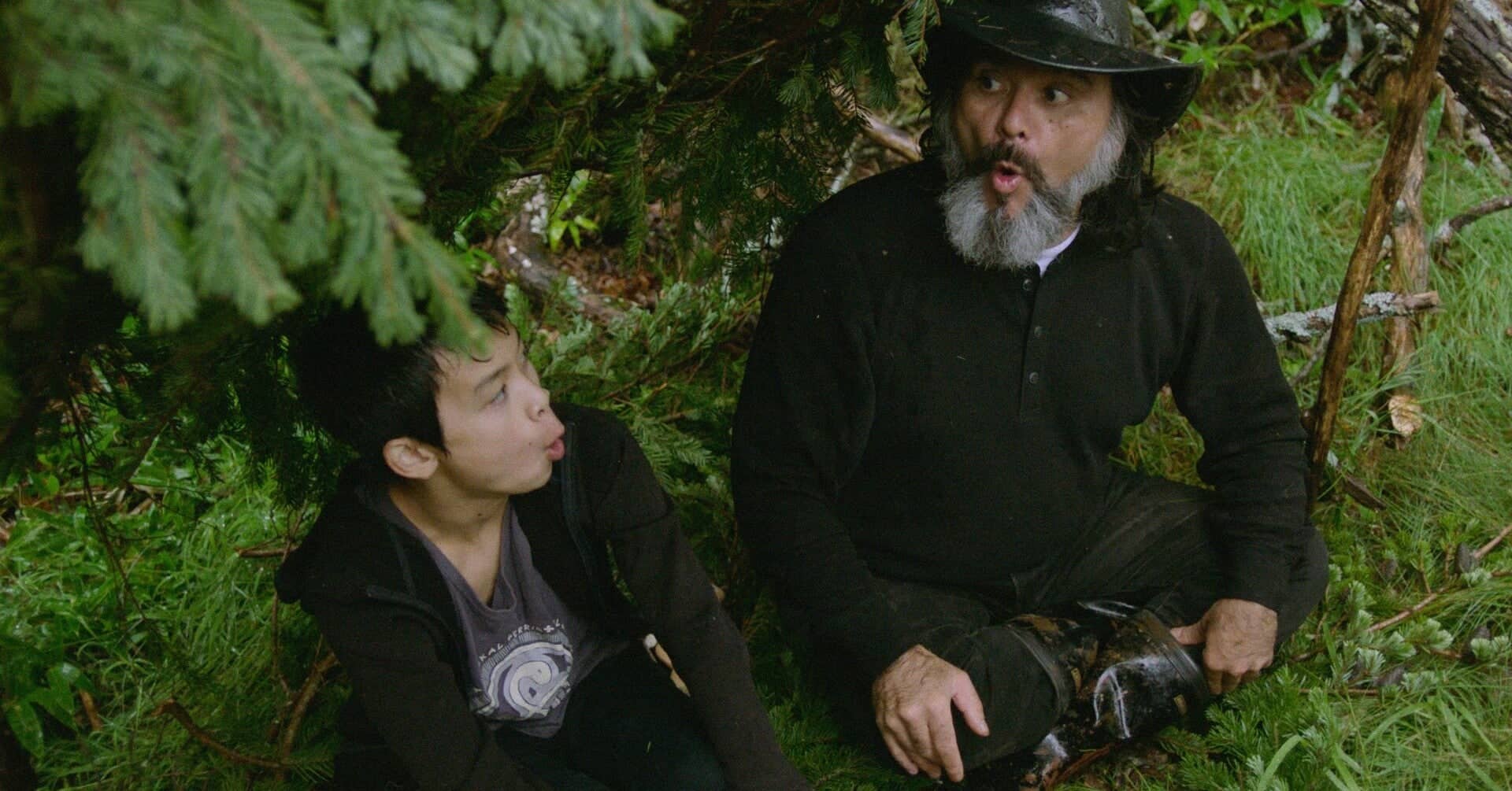After the success of “Delinquent Girl Boss”, Nikkatsu released the sequel only three months later, a decision that took its toll on the film, since Fujita barely had time to shoot it, much less writing it, which resulted in a script that hardly holds itself together.
Buy This Title
The story revolves around a group of delinquents, namely C-ko, Taki, Gani-shin and Jiro, who hang around mostly riding around in a buggy playing pranks to people, with no particular purpose. Another member however, Debo, who seems half-mad, spends most of his time digging holes during the nights in a school yard obsessively, to the point that his “work” eventually is even featured in the papers. Meanwhile, a gang of rich youths who spend the time much like the protagonists, provide an arch-enemy, with the feud eventually escalating to violence.
Two events change the story however. The appearance of Asako, a mysterious girl that is seen riding a horse, eventually even getting involved in a race of shorts with the buggy, who seems to like Taki. Eventually, it is revealed that she is the daughter of a higher up in a cult and that she plans on taking revenge by robbing the organization with the help of the gang. In the meanwhile, Debo does not prove as illogical as everyone thought, since his drilling bares results, with him finding the weapons he believed were buried in the courtyard. Properly armed, the gang members agree to the heist, but before that, a friend of Asako's takes them training to the beach.
The narrative here is paper-thin, with Fujita following an episodic approach filled with campy moments, that find their apogee in the beach, where the group does drills while the rest of the people there are just swimming. Some episodes are quite interesting, also highlighting Shohei Ando's excellent cinematography, with the fight in the gang's hideout, the horse-buggy race, and the one where the boys bare their ashes to the astonishment of the rest of the people in the beach being quite memorable. Furthermore, the beach part also includes an episode that seems to mock the “Sun Tribe” films, in probably the most (only, one could say) smart part of the movie.
Just like the previous entry of the series, however, the ending is rather bleak, with the gang getting involved in a shootout with the police, with the film taking a rather dramatic turn, which, essentially, borders on the tragedy. It is in this part where the movie actually thrives, both through the impressive shots by Ando, and particularly the ones inside the tunnel, and Mutsuo Tanji's editing, whose cuts make these sequences even more intriguing.
The actors do not get many chances to shine here, and the “substitution” of Akiko Wada by Yusuke Natsu (the film was still a medium of promoting singers) was not exactly beneficial to the production, although some segments of hers from the previous film do appear here, as much as her songs are heard. At the same time, it is difficult to say if there is an actual protagonist in the film, with the one who seems to be more on camera being Tatsuya Fuji as Gani-shin. What becomes clear, however, throughout the movie, is that the cast had the times of their lives, a concept that is obvious from the rather sincere smiles and laughter that permeate the narrative, with Meiko Kaji being the most obvious one in that regard.
On a level much lower than the first film, “Wild Jumbo” will solely be remembered for some key scenes, and the overall essence of fun it emits.
















